Other Articles You May Like
Everything to know about coconut oil: where it comes from and what it could do for your health
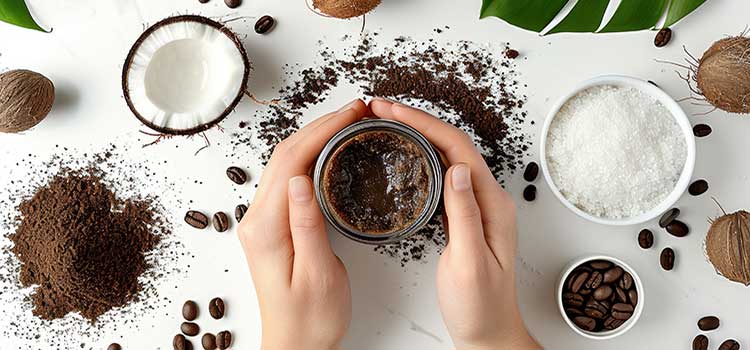
Cruise down the olive oil aisle at your local market and you may notice a new addition to the shelves: Coconut oil. Found in jars in solidified form, coconut oil was once a pariah in the Western diet because of its high levels of saturated fat. In recent years, however, the tropical nut oil has gained recognition for topical and internal use. It’s quickly become a favorite in the health food world.
Those who swear by coconut oil say it does more than just moisturize skin. It may help with weight loss and ward off heart disease. Proponents look at the long-time use of coconut oil in island nations, like Sri Lanka and the Philippines, as proof that it offers plenty of health benefits. And while those in the medical field acknowledge coconut oil’s chemical makeup is different than that of other saturated fats, they still urge people to monitor their fat and calorie intake.
So, is coconut oil just a craze or here to stay? This guide will examine the controversy over coconut oil, break down the research and give you plenty of new ideas for how to use coconut oil.


Coconut oil overview: why it’s different
Coconut oil has a complicated nutritional backstory. Even the most diehard fans can’t deny the high saturated fat content (83%), but it’s the chemical makeup we should pay attention to.
The saturated fat in coconut oil is made of medium-chain triglycerides (MCTs) which metabolize differently in the body than long-chain triglycerides (LCTs). The latter are found in saturated fats of other oils and animal products.
To sum up the science lesson: MCTs go directly to the liver and burn as fuel instead of being stored in the body as fat. They may also raise the metabolic rate slightly.
The other differentiator? The high percentage of saturated fat is what keeps coconut oil from liquefying at room temperature and gives it a longer shelf life.
How does coconut oil stack up to your other favorite oils? Take a look:

Source: USDA Nutrient Database
Coconut oil around the world
Most of us associate coconuts with tropical beach vacations, but the majority of coconuts grow on plantations in Indonesia, India and the Philippines. Naturally, coconuts are part of everyday culture in these regions and have been used in folk medicine traditions for centuries.
Americans may be adding coconut oil to their smoothies, cakes and granola, but here’s how different cultures use the tropical oil.

India
Ingredient in Ayurvedic medicine; to treat hair loss and burns
Jamaica
Used for heart health in the form of a tonic
Panama
To thwart various types of illness
Sri Lanka
To ward off heart disease

What’s in coconut oil?
While the white flesh of a coconut contains minerals like potassium, iron and magnesium, the oil contains negligible amounts of vitamins E and K and the minerals iron and zinc. However, the paucity of nutrients doesn’t cancel coconut oil’s unique health benefits.
Remember those MCTs we mentioned above? They’re made up of fatty acids called medium-chain fatty acids, or MCFAs, which have antimicrobial, antibacterial and antiviral qualities.
Coconut oil is made up of the following MCFAs:

Here’s where it gets interesting.
Coconut oil, in and of itself, doesn’t appear to have antimicrobial, antibacterial or antiviral qualities. Instead, the health benefits come into play when the fatty acids are converted in the body.

According to Bruce Fife, C.N., N.D., author of The Coconut Oil Miracle, coconut oil trumps others common cooking oils because of their powerhouse fatty acids.
With so much discussion surrounding coconut oil’s fatty acids, scientists have delved into whether lauric and capric acids really can combat illness.
- One study found that lauric and capric acids exhibited antibacterial and anti-inflammatory properties against a bacteria related to acne inflammation.
- Another study examined coconut oil pulling and its effect on plaque-induced gingivitis. The theory? Lauric acid has anti-inflammatory and antimicrobial effects. Study participants showed a decrease in plaque after day seven.

The coconut oil controversy
Coconut oil wasn’t always cool.
Fife points the finger at the American Soybean Association for much of coconut oil’s downfall several decades ago. Fife says the “Tropical Oils War” began in the 1980s when news headlines, fueled by the soybean industry, proclaimed that coconut and palm oils (both saturated fats) were unhealthy. The result? Everyone from food manufacturers to your local restaurant switched to hydrogenated soybean oil for their cooking.
Then came more bad news for the coconut oil industry. In 1994, the Center for Science in the Public Interest issued a warning that movie theater popcorn was loaded with “highly saturated coconut oil.”
The attack on coconut oil stemmed from an overall misunderstanding about saturated fats, Fife says. In other words, not all saturated fats are created equal.
Many in the medical field, including former Surgeon General Dr. C Everett Koop, eventually came out to defend coconut oil, or at least quell the panic that ensued from the popcorn warnings.
And it turns out, according to one New York Times article, the majority of coconut oil studies were done using partially hydrogenated coconut oil, which is chemically treated and may have a different effect on our health than virgin oil.
If you wade through all the recent history, you’ll learn that coconut oil was actually an important diet staple in the United States prior to the mid-1940s. According to research published in the Asian Pacific Journal of Tropical Medicine, it was “one of the major sources of dietary fats, aside from dairy and animals fat prior to the advent of the American edible oil (soybean and corn) industry.”
But where does coconut oil stand today? It still has its skeptics, but it’s also been called a “drugstore in a bottle.”

Coconut oil: disease fighter?
Researchers have spent more time examining the health benefits of coconut oil in recent years. Many studies have produced promising results and demonstrated coconut oil’s role as a natural disease fighter. However, many in the medical industry say more research needs to be done before we can definitively say coconut oil helps with weight loss, wards off heart disease and fights Alzheimer’s.

Weight Loss
Another day, another weight loss claim. A few studies have examined whether coconut oil helps people lose weight but most medical experts say the evidence is weak.
Much of the research relies on the theory that MCTs metabolize in the body as energy instead of being stored as fat. However, coconut oil is only made up of 58% MCTs. Measuring it against the weight-loss effects of 100% MCTs wouldn’t be an accurate representation. In addition, caprylic and capric acids are said to be the two MCTs most likely to be burned as energy. Coconut oil’s main component is lauric acid.
Very little research has been done on humans and results are mixed. A small study—conducted with 40 women—compared the weight loss effects of coconut oil and soybean oil. Each participant used two tablespoons of coconut oil or soybean oil in her cooking each day. Study subjects also cut 200 calories from their daily diets and incorporated four days of exercise into their routine. At the end of three months, the women in both groups lose approximately two pounds.
In another small study, men consumed virgin coconut oil and saw “significant” reduction in waist circumference after six weeks.
Bottom line: More research needs to be done.

Diabetes
No research has directly examined how coconut oil can affect diabetes. Studies have compared MCTs and long-chain triglycerides and determined that MCTs improve glucose tolerance. Since MCTs make up a large percentage of coconut oil, some people believe have suggested coconut oil could be a viable diabetes treatment.
Bottom line: More direct research is needed.

Heart Disease
How can a food so high in saturated fat possibly improve heart health? Coconut oil’s effect on heart disease is ongoing but there’s some promise of good news.
Coconut oil proponents often say the good health of certain island populations is largely in part to their diet, which relies heavily on coconuts. One study found that Filipino women who consumed the most coconut oil had significantly higher HDL (good) cholesterol.
In another study, the findings created a conflicting message. Participants of both genders consumed 20% of their calories from coconut oil or olive oil. After more than a month using coconut oil, both LDL (bad) and HDL cholesterol numbers were higher than when they consumed only olive oil.
Meanwhile, researchers in India found that consuming coconut oil doesn’t impact the chances of having a heart attack.
Bottom line: The jury is still out on whether coconut oil can positively contribute to a healthier heart.

Alzheimer’s
There are claims that coconut oil can help treat or prevent Alzheimer’s disease, but the International Food Information Council Foundation says there is a lack of direct research to back up this statement.
In order for the brain to function properly, it relies on glucose for energy. Over time, the brains of Alzheimer’s patients lose the ability to use glucose. Coconut oil produces ketones, a substance created when the body converts fat to energy, and some say could be used as an alternative energy source for the brain. The problem? To reach an effective level of ketones, you’d likely need more than a few tablespoons of coconut oil.
Bottom line: No solid research has been done to confirm these claims.

Inflammation
Coconut oil’s potential anti-inflammatory qualities are still up for debate in the medical field. In one study, no effect was shown on inflammation in humans after consuming coconut oil. However, another study revealed that coconut oil may be helpful in protecting against intestinal inflammation.
Bottom line: More research is needed.
Other coconut oil health claims
Coconut oil may be most associated with attempts to combat the preceding illnesses and health issues, but discussion swirls around other ailments the oil can potentially cure. However, much of this information is anecdotal or self-reported.
Currently, the U.S. National Library of Medicine (NLM) says there is insufficient evidence that coconut oil is effective for:
Chronic fatigue
Thyroid conditions
Crohn’s disease
Irritable bowel syndrome
The NLM points to developing research for coconut oil’s efficacy to treat head lice, psoriasis, and newborn weight gain. The results are, once again, mixed.
Head lice: NLM says a combination of coconut oil, anise oil, and ylang ylang oil appears to be equally effective as a spray with chemical insecticide.
Psoriasis: Coconut oil doesn’t appear to improve the effectiveness of UVB or PUVA light treatment for psoriasis.
Newborn weight gain: Massaging premature newborns with coconut oil may promote weight gain and growth, according to preliminary research.

How coconut oil is made
Coconut oil is classified one of two ways: virgin or refined, bleached and deodorized (RBD). This labeling signifies the level of processing involved in making the oil. Although chemicals are used in RBD oil, the process still retains the healthy fatty acids. Medical experts tend to recommend virgin coconut oil simply because it involves less processing.
Virgin coconut oil (VCO)
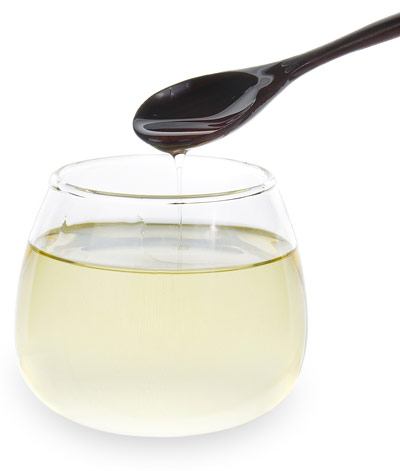
We’re all familiar with “virgin” and “extra virgin” olive oil. But to earn those descriptors, the oil must meet strict regulations.
There is no such system in the coconut oil industry. Although one company published its own standards more than a decade ago, there are no regulations on how the term is used when it comes to coconut oil. However, you’ll see products labeled “virgin” and sometimes “extra virgin.”
The general rule among coconut oil makers: Virgin coconut oil is made without additional chemicals or refining. There is no clear definition on what makes coconut oil “extra virgin.”
Making VCO
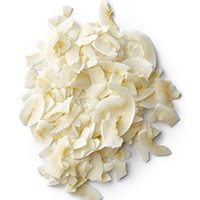
Virgin coconut oil starts with either fresh coconut meat or dried coconut. Then it’s up to the manufacturer to decide how they’ll procure the oil from the meat.
Fresh: In a wet-milling process, workers press out the coconut cream from the fresh coconut meat. This cream contains the oil that will then need to be separated from protein curds and water using one of several methods, including centrifuge, fermentation or boiling.
Dried: The oil is extracted using an expeller-press. Because the expeller method is an established practice among coconut oil makers, you’ll find many virgin coconut oils made this way.
The following methods are used by VCO manufacturers.
Centrifuge process

Once fresh coconut meat has been pressed, the next step is to remove the oil from the cream. The oil separates after being rotated in a centrifuge machine. No heat is present in the process.
Virgin coconut oil made from this method can be defined as “raw” since no heat was used.
Benefits: Unrefined, premium quality
Drawbacks: Expensive
Fermentation process
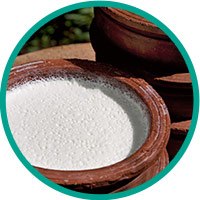
Like the centrifuge process, fermentation begins with fresh coconut meat that is pressed into cream. The resulting liquid is then placed in a heated container overnight. This allows the protein curds to float to the top with the oil sitting directly below. The heavier components fall to the bottom. The proteins and oil are removed together and heated to further separate the two components. With continuous stirring, the solids fall to the bottom and only oil is left.
According to research conducted in Malaysia in 2008, oil produced using the fermentation process, actually contained the highest amount of antioxidants. Although the addition of heat typically decreases the nutritional value in fruits and vegetables, the researchers provided this explanation:
“Most of the phenolic antioxidants present in coconut oil are also thermally stable.”
A more recent study, conducted in 2013, saw similar results. The researchers theorized that the higher antioxidant count was related to the “increased release” of bound antioxidants caused by heating.
Benefits: More antioxidants
Drawbacks: Short shelf-life
Cold-pressed coconut oil
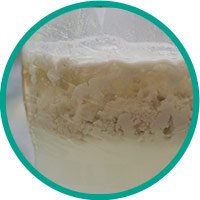
Despite the research demonstrating heating can be a beneficial step in coconut oil production, the information is still limited. Many companies therefore continue to stand by their cold-pressed oil method.
In this process, the coconut is ground or grated. The coconut is then dried at a low temperature which ranges between 103 degrees Fahrenheit and 150 degrees Fahrenheit. And as the name suggests, the oil is then pressed out. The coconut proteins are filtered so only the oil remains. Because the temperature and level of moisture differs from product to product, some say the quality and taste of cold-pressed oils can vary.
Benefits: Considered raw, depending on production temperature
Drawbacks: Taste and quality can vary
Refined, bleached and deodorized (RBD) coconut oil

On one end of the production spectrum is raw, virgin coconut oil. On the other end is refined, bleached and deodorized oil. The latter is mass produced.
RBD oil starts with copra, which is coconut flesh that is dried using smoke, sun or kiln. This drying process creates a crude oil product that is not safe to ingest. The next step involves deodorizing the oil with steam and filtering it with bleach clay so the oil is no longer brown.
The fatty acids remain intact, but some of the coconut’s phytonutrients are removed during process. This causes the oil to lose its coconut flavor or aroma.
Benefits: Less expensive than virgin coconut oil
Drawbacks: Highly processed
Fair trade coconut oil

Coconut oil’s increasing popularity has put a spotlight on the farmers who are working hard to meet the growing demand.
In 2014, Fair Trade USA launched Fair Trade Certified coconut products to help the very people who bring coconuts to our lives.
The organization, which strives to make sure farmers and workers earn a better income and work in a safe environment, called out the “significant gap” between the increased sales of coconut products and the incomes farmers were earning.
“In the Philippines, one of the world’s leading coconut producers, an estimated 60% of small-scale coconut farmers live in poverty,” Fair Trade USA said in a press release.
With the help of Fair Trade USA, coconut farmers can earn additional premiums ranging between $40 and $90 per metric ton for each coconut sold. This extra money helps communities with healthcare, agricultural training and business development.
Consumers can find Fair Trade Certified coconut oil from several companies in North America.

MCT oil: liquid coconut oil
You can’t exactly drizzle coconut oil over your salad, but someone found a solution to that predicament.
MCT (medium-chain fatty acids) oil, which comes in liquid form, is a manufactured product created when fatty acids are extracted from coconut oil. It typically contains two of the fatty acids—caprylic and capric. Because lauric acid has a high melting point, it’s typically removed in order to make the product liquid.
The problem? Lauric acid is said to be the most valuable component of coconut oil.
To remedy this drawback, some MCT oil brands retain a percentage of lauric acid in their product.
Often marketed as a tool for weight management and to boost energy, MCT oil is also used by those treating dementia patients.
Reidun Koren, Director of Operations at Garden View Residential Care Facility near Seattle, has administered MCT oil to dementia residents for years. Her staff also cooks with pure coconut oil.

“We’ve gotten away from canola oil and any kind of other oils,” Koren said.
Armed with her naturopathy education and additional research about coconut oil, Koren decided to add it to the residents’ meals. However, not everyone loved the coconut flavor. Because the oil’s solidified state also didn’t work well in certain recipes, Koren switched to MCT oil. Now she adds to it to everything from salads to chili to homemade guacamole.
“We’re getting away from products that fog our brain,” Koren said. “Starting with MCT oil gets the flow going.”
And she’s seeing positive results. Dementia patients who arrive barely saying a word demonstrate small changes, and in typically in short order.
“Soon after starting one resident on MCT oil, she was putting potted plants together,” Koren said.
In another instance, a patient was moved to a new location where MCT oil wasn’t administered as frequently. Instead of interacting with others, the patient began to passively watch what was happening around her.
“I saw a real a change in her when they weren’t giving her MCT oil,” Koren said.
Residents typically receive one tablespoon of MCT oil in the morning on toast. They’re given another tablespoon in an afternoon smoothie.
Koren acknowledges that incorporating MCT oil into the residents’ diet may just be one piece of the puzzle. Residents participate in music therapy, eat a diet low in gluten and interact with household animals, but she believes MCT oil “helps on some level.”

The Future of Coconut Oil
It’s been used by island populations for centuries and survived media backlash for decades, but one thing is certain: Coconut oil is here to stay.
Because of its popularity, researchers are likely to devote more time to this controversial ingredient in the coming years. We can look forward to more answers about how coconut oil fits into a healthy lifestyle. In the meantime, a jar of coconut oil provides a tasty tune-up for your culinary routine, and a great money-saver in your medicine cabinet.
Updated: April 2, 2024
